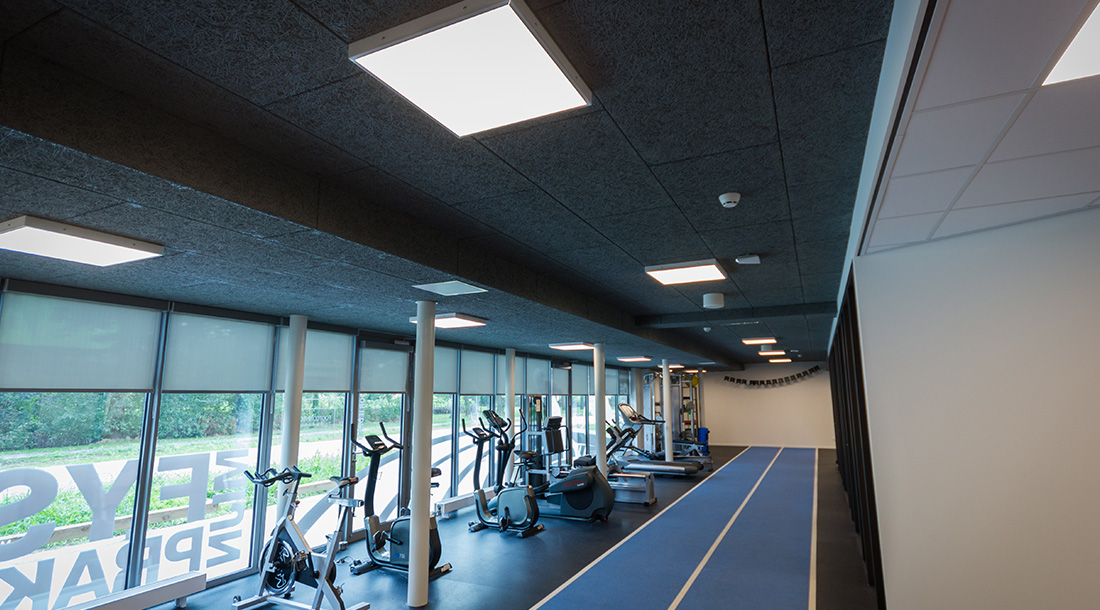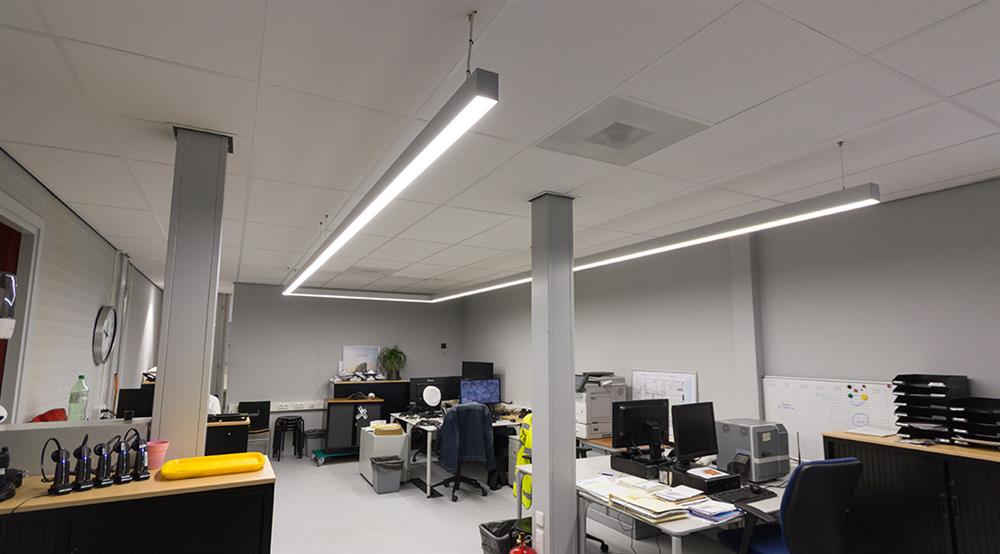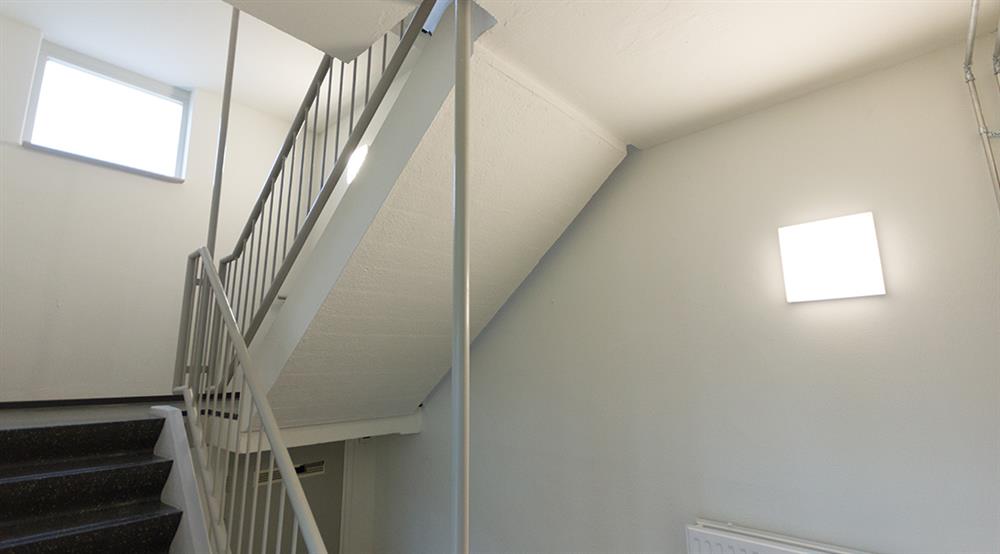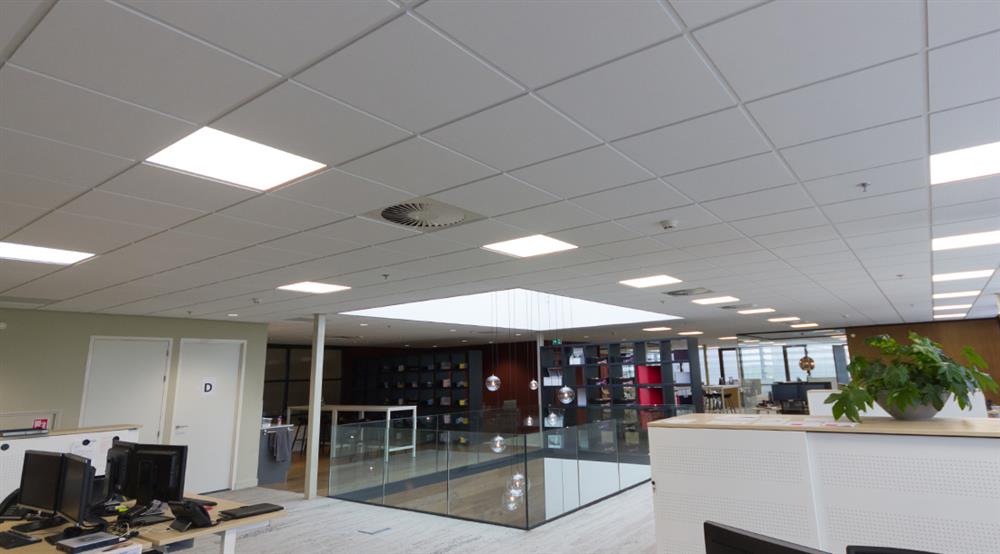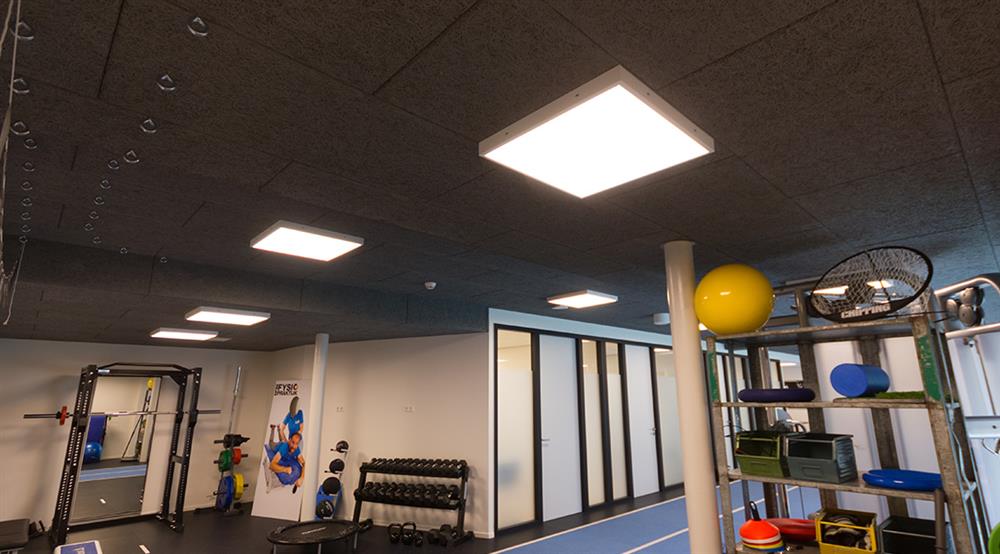What is evenness in indoor lighting?
Lighting uniformity is one of the standards described in the European standard NEN-EN 12464-1 that lighting installations must comply with. But what exactly is it and how do you calculate it? Whereas Lumen says something about the brightness of an individual fixture and lux value says something about the amount of light emitted on a […]
Lees meerGuidelines for sports hall lighting
Above all, athletes and spectators want to enjoy sports. Without you perhaps noticing it, good and proper lighting contributes greatly to this. In the case of sports hall lighting, it is no different. There must be enough light, there must not be too much glare when looking at the light AND the light fixtures must […]
Lees meerWhat is Tunable White lighting?
With Tunable White lighting, it is possible to adjust the color temperature (expressed in Kelvin). This allows you to create warmer or colder light. This can be useful when performing different tasks in one room (focused work or less focused work) or, for example, seasonal changes. Possibilities with Tunable White Setting the right color temperature […]
Lees meerWhat is the IP value in lighting?
An IP rating literally translated means International Protection rating, which stands for an international code that classifies and assesses a certain degree of protection. The IP value is always represented by two digits. The former represents protection against solids and the latter against moisture and water. Simply look up IP value in the table If […]
Lees meerWhat is dim to warm LED lighting?
Dim to warm LED lighting has a dual function. With these lights, you can dim the brightness which means you reduce the brightness. But at the same time as dimming, the color temperature (expressed in Kelvin) of the lighting also changes. Dimming causes the light to get warmer and warmer, thus lowering the Kelvin value. […]
Lees meerWhat is the CRI in lighting?
CRI is a term you come across a lot when choosing the right lighting. CRI stands for Color Rendering Index. This is an index that states how “real” the color looks, or in other words, to what extent do the colors differ under lamp illumination compared to daylight? The higher the value (displayed between 0 […]
Lees meerWhat is the IK value in lighting?
In addition to the IP value, there is also the term IK value. The “K” in IK value stands for kinetic, or: the IK value indicates the extent to which the fixtures are protected against kinetic energy. Kinetic energy means the energy carried by an object. In simple terms, how impact/impact resistant is the lighting? […]
Lees meerWhat does UGR mean?
UGR stands for United Glare Rating. The UGR value determines the extent to which lighting is stressful through glare or light pollution in a specific room. An average UGR value is between 15 and 30. The higher the UGR value, the more stressful the lighting is. How is the UGR value determined? Before we tell […]
Lees meerWhat does Lumen mean in lighting?
You often encounter the term Lumen when purchasing lighting. Lumen stands for the unit of luminous flux: it measures the amount of light coming from a light source. The difference between Lumen and Lux Lumen represents the luminous flux that lights emit. The more lumens a fixture has, the brighter the bulb. Lux says something […]
Lees meerWhat does Kelvin value mean in lighting?
The term Kelvin is a term you will encounter by default when purchasing lighting. Kelvin (also shown as “K”) represents the color temperature of lighting. This temperature can greatly determine the atmosphere of a room. The Kelvin can vary enormously: from warm white light to daylight. Kelvin is represented in a value: the lower the […]
Lees meer
